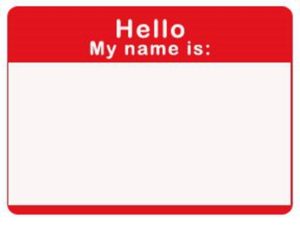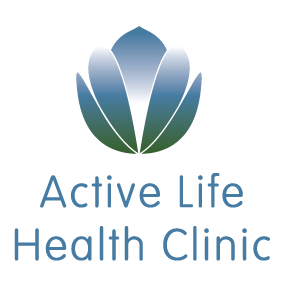 Sometimes I think that it would be helpful if we all wore “My Name Is” nametags. I’m horrible with names. I try, but it’s something I continue to have to work to improve. If you ever catch me stumbling with your name, please don’t be insulted. You aren’t the first time I’ve pulled that embarrassing blank. But, please know as well that I’ve also grown used to being called by the wrong name. For some reason, people often think my name is Michelle.
Sometimes I think that it would be helpful if we all wore “My Name Is” nametags. I’m horrible with names. I try, but it’s something I continue to have to work to improve. If you ever catch me stumbling with your name, please don’t be insulted. You aren’t the first time I’ve pulled that embarrassing blank. But, please know as well that I’ve also grown used to being called by the wrong name. For some reason, people often think my name is Michelle.
Now, on to my TCM story. Don’t worry, I’ll connect the dots at the end.
I was at a health trade show recently, wearing a nametag with my title, “Doctor of Traditional Chinese Medicine.” At a health product booth, one guy noted that his sister is a TCM as well, and that he loves acupuncture. For the remainder of my story, I’ll call him my “TCM step brother” because I like to call my TCM colleagues my TCM sisters and brothers—I’ve done this ever since one of my first TCM teachers suggested that idea years and years ago. The other guy there said that he’s had acupuncture too, but it was really intense and painful. We’ll call him “The Other Guy.”
Surprised, my TCM Step Brother and I raised our eyebrows and said that it shouldn’t be painful like that. We asked The Other Guy more about his “acupuncture” experience.
He said, “Well, the needles were put in and moved around until my muscle cramped up really painfully, and then he took the needle out.”
“Oh,” I said. “That sounds like IMS. Was it a physio who did your treatment?”
“Yes,” he replied. “How did you know?”
I knew because the treatment that The Other Guy received is a common physiotherapist treatment called intramuscular stimulation, or IMS, for short. IMS involves the insertion of a needle into tight and tender muscle bands. When the muscle is too contracted it will cause the muscle to grab and produce an intense cramp. The needle is soon after removed.
Some of my patients have described IMS as so painful that they cry during treatment. My physio friends have even confirmed this.
Acupuncture should not be this painful. Sometimes a needle does suddenly grab and create a “travelling” sensation or muscle twitch. But I have never made a patient cry because of pain.
IMS only needles into specific tight muscles. Acupuncture can treat tight muscles locally (in the tight muscle) or distally (at another location away from the tight muscle). Acupuncture professionals also look at whole systems for assessment and treatment. For example, if tight muscles are due to chronic stress, acupuncture (and TCM) can help with stress management. If stress is also causing digestive issues, acupuncture can work on that issue simultaneously–we treat the whole you, not just parts of you.
Now, don’t get me wrong, IMS can be very effective. The Other Guy told TCM step brother and me that the treatment helped him. And some of my patients get both IMS from a physio and acupuncture from me.
So, here’s the thing. I told you I would tie it all together. Michelle is a very nice name. I know several Michelles that I like very much. But my name isn’t Michelle. Similarly, IMS is IMS, not acupuncture. Acupuncture is acupuncture, and is very much a part of a whole diagnostic and treatment system called Traditional Chinese Medicine.
Regardless, I hope that you get the treatment that works for you and heals your pain!
